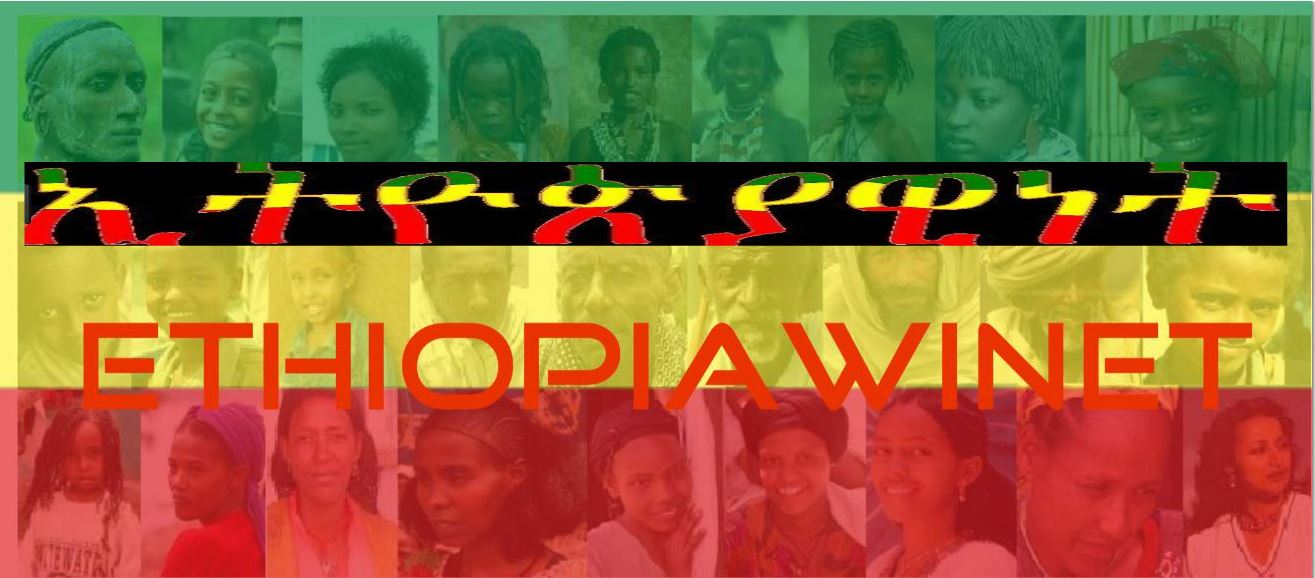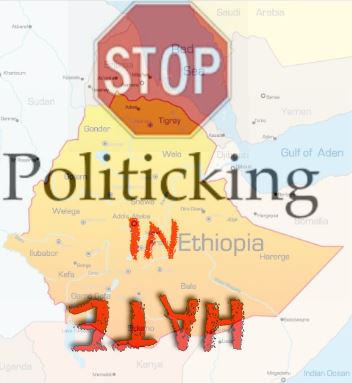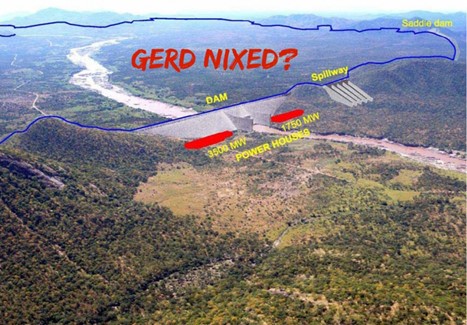Fighting T-TPLF Internal Colonialism Using the Irresistible Power of EthiopiaWINet (Ethiopian-ness) (Part III)
“EthiopiaWINet is an addiction [deep passion]. It is in the heart of each and every Ethiopian. If there is a way to open and look at what is in the hearts and and minds of Ethiopians, what we see here today [EthiopiaWINet] is what will be found. [EthiopiaWINet] is to be free. Human beings being free to express their feelings… Our people did not heroically sacrifice themselves in yesteryears for our country because they were paid. Our people who gave up their lives for the one-ness (unity) of our country. In yesteryears, our people shed their blood in major battles for [to defend the integrity] Ethiopia. Now it is expected of us to work (sacrifice) for our country. We cannot go forward looking backwards. Let us not dwell on the past. Now we must stand together collectively for our country.”
Obbo Lemma Megerssa, President of Oromiya State, speaking at the Amhara Oromo Discussion Forum in Bahr Dar, November 4, 2017.
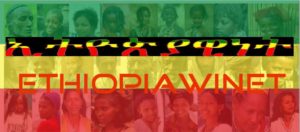 Author’s Note: This commentary aims to provide a sketch of the breadth and scope of my conception of EthiopiaWINet. There are many commentaries to come that will fully develop the themes briefly discussed here.
Author’s Note: This commentary aims to provide a sketch of the breadth and scope of my conception of EthiopiaWINet. There are many commentaries to come that will fully develop the themes briefly discussed here.
I believe there are at least 100 million varieties of EthiopiaWINet. I also believe equally that if those varieties were to be sorted somehow they could be arranged in a beautiful potpourri of themes and ideas reflecting the diversity of Ethiopian society. In this and subsequent commentaries, I aim to explore the essence of EthiopiaWINet from a variety of perspectives ranging from the secular to the spiritual and from the ordinary to the sublime. I expect to write numerous commentaries in the short and long-terms promoting and defending EthiopiaWINet as I promised I would when the T-TPLF (Thugtatorship of the Tigrean People’s Liberation Front) publicly challenged my EthiopiaWINet. Let me say in passing that I am not bothered by the T-TPLF’s challenge to my EthiopiaWINet. That is a simple issue of mind over matter for me. I don’t mind, and they sure as hell don’t matter to me.
But I am grateful to the T-TPLF for the challenge because they gave me – indeed forced me to come out in public — an opportunity to perform my sacred duty of speaking up, writing up, listening up and standing up for EthiopiaWINet.
Ethiopian Exceptionalism
I believe in “Ethiopian exceptionalism”. By this phrase, I simply aim to convey the idea that Ethiopia has certain unique and positive qualities that make it different (but in no way better or superior to any others) from other nations in the world. I mean exceptionalism is the ordinary things of life. A reporter for the Mail & Guardian while visiting Ethiopia yearned for a speedy return: “But the thing to return for with the greatest urgency is the country’s hospitable people. It is as though Ethiopians have been schooled in being pleasant. Coupled with their sense of humility is a stirring physical beauty.” Their humility, hospitality and beauty makes Ethiopians exceptional.
Exceptionalism in the big things too. During the First Hijra, the Prophet Muhammad directed his persecuted followers “to leave Makkah and to seek sanctuary in Abyssinia (Ethiopia) ruled by a Christian king, well-known for being a just and God-fearing man.” The Axumite king and the Habeshas (Ethiopians) welcomed the persecuted Muslims as early as 615 A.D. with great hospitality, gave them protection and assistance and refused to return them when requested to do so by their enemies. Ethiopia is one of the few countries in the world where Christians and Muslims have lived side by side with mutual respect for hundreds of years. That is true today even today despite the relentless efforts of those who seek to cling to power by inciting sectarian conflict.
Exceptionalism in civilization too. The 11 medieval monolithic Christian churches of Lalibela in Ethiopia built in the 13th-century as the “New Jerusalem” are a marvel of human ingenuity. UNESCO described the churches as “a gigantic accomplishment in engineering and architecture”. The Lalibela churches were hewn from solid blocks of rock with doors, windows, columns and roofs meticulously carved out and complemented with an extensive system of drainage ditches, trenches and ceremonial passages.
All Ethiopians are proud that “Lucy” (known as “Dinqnesh” [unique one] in Ethiopia), “the grandmother of humanity”, a “3.2 million-year-old member of Australopithecus afarensis and the most complete skeleton of an early human ancestor ever”, was discovered in their country.
Ge’ez script, one of the oldest in the world, used widely in Ethiopia is the only native African script in full usage at a national and everyday level.
Ethiopia kept the flame of freedom alive when the whole African continent was plunged in the darkness of colonialism. When the great PanAfricanist Kwame Nkruma wrote his poem, “Ethiopia Shall Rise”, he spoke of Ethiopia as “Africa’s bright gem”, “land of the wise”, the “bold cradle of Africa’s ancient rule” and as “Africa’s hopes and destiny.”
In his autobiography, Nelson Mandela wrote Ethiopia “has always held a special place in my own imagination and the prospect of visiting… attracted me more strongly than a trip to France, England and America combined. I felt I would be visiting my own genesis, unearthing the roots of what made me an African.” In April 1962, when Mandela was on the run from apartheid South Africa, H.I.M. Haile Selassie declared him to be the Son of Ethiopia and ordered that he be issued an Ethiopian passport which he received in the name of David Motsomayi. Thirty-two years later, Nelson Mandela emerged from prison and saved South Africa from certain death and destruction and showed Africa and the world what true leadership means.
Ethiopia was the only African country to sit on equal terms with the great powers of the world and became an original signatory to the Covenant of the League of Nations in 1922. Ethiopia sat on equal terms with the great powers of the world and became an original signatory to the Covenant of the League of Nations in 1922. Ethiopia was the only African country to sign the U.N. Charter in 1945. Ethiopia was the only African country to become an original signatory to the Universal Declaration of Human Rights in 1948 and the Geneva Conventions in 1948. Ethiopia was the principal architect of the Organization of African Union in 1963 which established its headquarters in Addis Ababa, Ethiopia.
Ethiopia is unlike the other “exceptional” countries in the world who are known for their military might, economic prowess, advanced science and amazing technology. Indeed, Ethiopia for the past decades was known for its poverty, famine and dictatorship. George Ayittey says, “Africa is poor because she is not free.” Likewise, Ethiopia is poverty and famine-stricken because she has been unfree and a victim of tyranny for so long.
But Ethiopians are an exceptional people who could be a beacon for all of Africa, if they were free. Free to think. Free to elect their own government. Free from fear. Free to make their own choices. Free from the burdens of the past. Free to dream about the future. Free the imagination of its youth. Free from tyranny. Free from those who incite hate.
I can go on listing examples of Ethiopian exceptionalism, but my purpose here is not to offer ode to Ethiopia. My purpose is to offer a quick reply to those who say there is no such thing as EthiopiaWINet. Ethiopia is a contrived political entity that came into existence over the past century. There is no such thing as an “Ethiopian people”, an “Ethiopian history”, an “Ethiopian culture and tradition” and an “Ethiopian destiny”.
The essence of EthiopiaWINet is freedom! Ethiopia has played a unique role in the history of world freedom. It can play a unique role in world history if its people embrace and practice EthiopiaWINet which can be simply defined as freedom.
What is EthiopiaWINet? That is like asking, “What is a rose?”
Shakespeare answered, “That which we call a rose/ By any other word would smell as sweet.”
That which we call EthiopiaWINet, by any other name would be called freedom.
EthiopiaWINet is an addiction
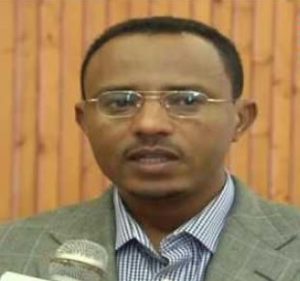
Lemma Megerssa is absolutely right. EthiopiaWINet is an addiction. I am a live witness. I proudly confess I am a lifelong addict of EthiopiaWINet. Yes, I get high on EthiopiaWINet every day. I wake up every morning with an EthiopiaWINet hangover. I am an EthiopiaWINet-holic. I was born addicted to EthiopiaWINet. I was one of those “EthiopiaWINet addicted babies.” Both my mother and father were lifelong incurable EthiopiaWINet addicts. In today’s language, we would all be called EthiopiaWINet-heads. My father was so addicted to EthiopiaWINet, the Italians captured him on the battlefield in 1937 during the Second Italo-Ethiopian War and sent him to a concentration camp called Danane, some 25 miles south of Somalia’s capital Mogadishu, for 4 years. In fact, my grandparents, great grandparents all the way up the line were also EthiopiaWINet addicts. All members of my family and extended family are also hopelessly addicted to EthiopiaWINet. Everyone I knew growing up was an “EthiopiaWINet” addict. I love my EthiopiaWINet addiction. That addiction has made me who I am today. That addiction has kept me writing thousands of words about Ethiopia every week for 12 years straight, without missing a single week. EthiopiaWINet is in my DNA. It runs in my blood.
EthiopiaWINet is an addiction vastly more powerful than any drug.
The great thing about EthiopiaWINet addiction is that there is no cure. None. Once addicted to EthiopiWINet, you are addicted for life.
I have the sweetest hangover over my EthiopiaWINet, every day! And I don’t want no cure!
In the lyrics of Diana Ross’ “Love Hangover” (EthiopiaWINet Hangover):
If there’s a cure for this [EthiopiaWINet]
I don’t want it
I don’t want it
If there’s a remedy
I’ll run from it
From it
Think about it [EthiopiaWINet] all the time
Never let it out of my mind
‘Cause I love you [EthiopiaWINet]
I’ve got the sweetest hangover [Ethiopiawinet]
I don’t want to get over….
I don’t want no cure
I don’t want no cure, no cure…
Don’t call the doctor, don’t call the preacher… I don’t want no cure…
Sweet, sweet… EthiopiaWINet hangover… Sweet, sweet….
EthiopiaWINet is LOVE addiction for Mother Ethiopia
Teodros (“Teddy Afro”) Kassahun sang EthiopiaWINet is love addiction for Ethiopia.
That’s just fine for an old EthiopiaWINet junkie like me!
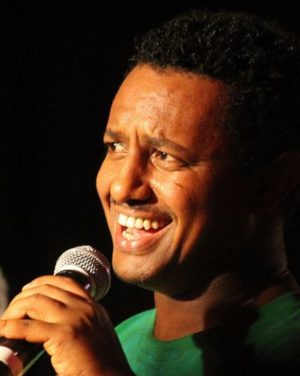
What more could I possibly add to Teddy’s musical tribute to his Mother Ethiopia?
Even if I pass [die] away
My motherland [Ethiopia]
She [remains] is my honor
Indeed, [she is] my [mother] country.
So many have died
Guarding your [her] honor
Against those who have crossed seas
To dishonor you [her].
You are the land of heroes
[Land] Where Adam left his footprints
The fountainhead of Ghion [river mentioned in Ch. 2, Genesis]
[From where] your name is called out.
Not only those who see your flag waving in the sky
Even those who hear the name “Ethiopia” [dare] keep quiet
Not only those who see your flag waving in the sky
Even those who hear the name “Ethiopia” [dare] keep quiet.
With your rainbow [shining]
The sky draped with your flag
Your symbol is imprinted on the palm of the world
And known [even] to Aryam [Ge’ez: sky above all skies, heaven].
Mountain [ranges] of high peaks
Have stood guard over you
[From] The peak of mountains
That citadel of Axum, Ethiopia.
You are the gate to Creation
The [beginning] chapter for the round world
If [rainbow] colors are seen across the sky
It is hers [Ethiopia’s] and no one else’s.
Even though the world calls her [Ethiopia] backward today
She will be the front runner of the coming age
Just let me repeat her name over and over
Isn’t Ethiopia my own name?
If there is less food [injera] on the table [Ethiopia is poor]
Is it possible to trade one’s [poor] mother for anything else
I will hold tight on her skirt
And never give up hope in my mother.
Before [I] finish paying her [Ethiopia] for all her favors
Should not people say [shout out] “Unity” when they hear [the name] Ethiopia
Ethiopia! Ethiopia! My country!
Isn’t my honor because of you?
You are the seed of Solomon
Tears of the holy ones from which your leaf sprouted
It should be nothing new [not be surprised] today to those
Who touched [provoked] you to be burned by the fire they lit.
Without any limitation to your glory
In the book of your heritage with the history of the spirit of the ages [written]
The prophets saw you from afar and wrote in their books:
“Don’t touch Ethiopia!”
In the north
In the south
In the east and in the west
May your bounty be full!
Begone hardship [misery] from the land [Ethiopia]
Let your bounty be full!
Begone hardship [misery] from your land [Ethiopia]
Let your bounty be full!
EthiopiaWINet for me personally is a labor of love
For the past twelve years, I have written hundreds of commentaries on EthiopiaWINet. For those who have followed me week after week for twelve years, that looks like super hard, time-consuming work. When it is a labor of love, it can never be hard labor.
But it has been unbearably painful. Living every day with the memory of the Meles Massacres of 2005, the killing fields of the Irrecha Massacres, the house-to-house hunt down Gambella Massacres, the air bombing Ogaden Massacres, the persecution of Ethiopian Muslims who tried to keep politics out of their religion and the systematic genocidal annihilation of Amhara people by the leaders of the Thugtatorship of the Tigrean Peoples Liberation Front. But love of EthiopiaWINet overcomes deep pain and heals deep psychic wounds.
Teddy Afro said, “Love conquers all.” Love also heals old wounds, mends broken hearts and soothes troubled spirits. Martin Luther King said, “All labor that uplifts humanity has dignity and importance and should be undertaken with painstaking excellence.” I strove for 12 years to achieve painstaking excellence to uplift the humanity and dignity of all Ethiopians without regard to ethnicity, religion, language, region, gender, age… That is because the fire of EthiopiaWINet burns in my heart and shines in my mind.
Ethiopians show their EthiopiaWINet — love for Ethiopia — in 100 million different ways.
I show mine by using my pen and keyboard to challenge anyone on the planet who seeks – dares to think about — to degrade, debase or demean Ethiopia or its people. I show my EthiopiaWINet by defending the dignity and honor of Ethiopia in the court of world public opinion day and night, rain or shine. I show my love by teaching and preaching EthiopiaWINet. I practice my EthiopiaWINet by speaking the truth, the whole truth and nothing but the truth about Ethiopia. I am proud of my EthiopiaWINet.
EthiopiaWINet is about the Ethiopian Dream
The Ethiopian Dream is a society where a person is judged not by one’s ethnicity, religion, language or region, but the content of their character and their pursuit of and commitment to the ideal of their common humanity that bonds their brotherhood and sisterhood. The Ethiopian Dream is about equal rights for all and where no individual or group believes in a supreme birth right to rule others. It is a dream about equal opportunity for each and every Ethiopian and respect for the human dignity of every person regardless of their demographic characteristics or accidents of their births. It is a dream about the supremacy of the rule of law where no one enjoys special rights, benefits and privileges because of their social background or political affiliation. It is a dream about one person, one vote where one person does not steal the other person’s vote. It is a dream about overcoming the politics of hate with the practice of love.
Over the years, I have written about the “Ethiopian Dream”. In 2015, in my commentary, “Resolutions for the Ethiopian New Year”, I “articulated my version (not vision) of the Ethiopian Dream and challenged others to articulate theirs.” In that commentary, I argued there was no reason why there could not be an “Ethiopian Dream” if there could be an American, South African or Chinese Dream.
I believe the foundation of the American Dream was proclaimed in the Declaration of Independence in 1776: “We hold these truths to be self-evident, that all men are created equal, that they are endowed by their Creator with certain unalienable Rights, that among these are Life, Liberty and the pursuit of Happiness.” Malcom X said, for “twenty million [negroes] in America who are of African descent” who are denied their equality, liberty and happiness, “it is not an American dream; it’s an American nightmare.” But Martin Luther King insisted on payment on the “promissory note to which every American was to fall heir” made in 1776. He had a dream of an America where his children “will not be judged by the color of their skin but by the content of their character.” He dreamed about the the power of love transforming an enemy into a friend. He dreamed about a world where each person can transcend the “narrow confines of his individualistic concerns to the broader concerns of all humanity.”
Today, an estimated one million Ethiopians in America are pursuing the American Dream.
Nelson Mandela also had a dream for South Africa while he languished in aparthied prisons for 27 years, head unbowed and unafraid. In his presidential inaugural speech, Mandela proclaimed his South African Dream: “Never, never and never again shall it be that this beautiful land will again experience the oppression of one by another.”
If I were asked to state my quintessential Ethiopian Dream, I would simply refer to Mandela’s dream for South Africa.
Chinese President Xi Jinping described the Chinese dream of “national rejuvenation, improvement of people’s livelihoods, prosperity, construction of a better society and military strengthening.” He urged the young people of China to “dare to dream, work assiduously to fulfill the dreams and contribute to the revitalization of the nation.”
EthiopiaWINet is about the Ethiopian Dream. But to understand the Ethiopian Dream, we must work together day and night to get rid of the Ethiopian Nightmare. It is impossible to dream when one is living a nightmare!
EthiopiaWINet is a vision
EthiopiaWINet is an inner and outer vision. It is the ability to see ourselves from within ourselves. This is not as mystical as it may sound. Some of us see ourselves principally and practically as members of an ethnic, religious, linguistic or regional groups. We see our personal lives and others through narrow and blurred ethnic lenses. Our vision gets defined by the narrowness of our mind. When we narrow our vision, we become prisoners of narrow-mindedness. Narrow-mindedness forces us to live in a fear-ridden bipolar universe. We fall into the trap of thinking “I, me, my, ours, we” and “they, them, theirs”. We lack the vision to see ourselves as part of a larger community of humanity undifferentiated by artificial categories of race, ethnicity, gender, religion, nationality.
The vision of EthiopiaWINet enables us to see each other not as members of artificial constructs of ethnic groups but as human beings created in the image of God. EthiopiaWINet is a grand vision of ourselves not separated by ethnicity, religion, language and the rest but united in our yearning for freedom, justice, fairness, and equality. Such is the vision we should nurture for the younger Ethiopian generation and generations yet to come.
EthiopiaWINet is inclusiveness (ubuntu)
The South African word “Ubuntu” is often translated as “humanity towards others”. I subscribe to Nelson Mandela’s definition of Ubuntu, “In Africa there is a concept known as ‘ubuntu’ – the profound sense that we are human only through the humanity of others; that if we are to accomplish anything in this world it will in equal measure be due to the work and achievement of others.” The idea of ubuntu inclusiveness was so important to the South Africans, they included it as the very last provision of their Interim Constitution: “There is a need for understanding but not for vengeance, a need for reparation but not for retaliation, a need for ubuntu but not for victimisation.” They were referring to truth and reconciliation. A great lesson for EthiopiaWINet inclusiveness.
“Ubuntu” is to South Africans as EthiopiaWINet is to Ethiopians. We Ethiopians are human only through the humanity of other Ethiopians — not through their ethnicity, religiosity, territoriality, enmity or stupidity. EthiopiaWINet breaks down ethnic kilils and opens up a level playing field for everyone.
In a more philosophical vein, Martin Buber wrote about the “I-Thou” form in human relationships. One need not objectify the other as an “It”, but rather acknowledge a living human relationship sustained in the spirit, mind and experience of the other. There is a dimension beyond ethnicity, sectarianism, language, etc. It is the infinite dimension of “I-Thou” human relationships at the individual and collective levels. Simply stated, there can be no “I” without “Thou”. That is Ubuntu. That is EthiopiaWINet.
Inclusiveness is as the core of Ubuntu and EthiopiaWINet. These are two expressions of the same thing. Both are founded on core African values of respect for the dignity and honor of the human person, tradition of hospitality, respect for community life and solidarity in brotherhood and sisterhood.That is what I mean when I say EthiopiaWINet is inclusiveness.
EthiopiaWINet is a non-zero-sum game. The rules of the game are cooperation, consultation, collaboration, give-and take, partnership, alliance-building and synergy.
EthiopiaWINet takes us to the next level. We rise up from narrow ethnic ambition and scale up to a larger vision that includes our brothers and sisters. When we practice inclusiveness or EthiopiaWINet, we no longer think and care about the scaled down “I, me, my and ours” as members of particular groups. We scale up to think about “We, us, ours” as human beings bound in a single garment of destiny, to borrow a phrase from MLK.
EthiopiaWINet is the irresistible power of transformation
EthiopiaWINet is an irresistible power of transformation– self-transformation, social transformation. EthiopiaWINet is the irresistible power of nonviolence. Martin Luther King said, “Nonviolence is a powerful and just weapon, which cuts without wounding and ennobles the man who wields it. It is a sword that heals.”
That is exactly what EthiopiaWINet is, a powerful weapon that cuts without wounding and ennobles every Ethiopian woman and man who wields it.
EthiopiaWINet is a sword that heals, just like the surgeon’s scalpel.
EthiopiaWINet can transform hate into love; it can create unity out of division and it can turn competition into cooperation.
EthiopiaWINet can forge unity from division, extract trust from distrust; it can replace corruption with integrity, ugliness of the soul with beauty of spirit; it can swap cruelty with compassion, change despair to hope, transform cowardice into courage and self-doubt into self-confidence. EthiopiaWINet transforms might into right, government wrongs into human rights, ethnicity into humanity and dishonor into dignity. EthiopiaWINet can replace doubt with faith of our ancestors, bitterness with forgiveness and reconciliation, shame with honor, cynicism with idealism, stupidity with creativity, injustice with fairness, pessimism with optimism, war with peace, narrow-mindedness with tolerance, deceitfulness with truthfulness, and despair with hope.
Aaaaahh, the bliss of EthiopiaWINet!
To be continued…

